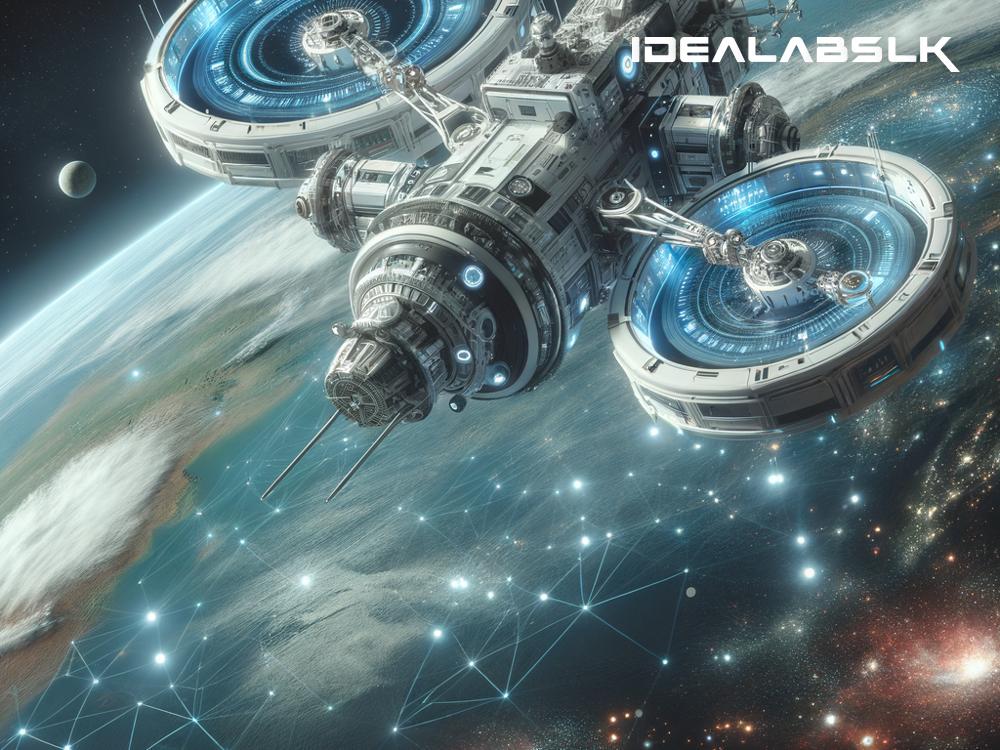The Role of Space Exploration in Advancing Artificial Intelligence by 2025
An Exciting Journey into the Unknown
As we edge closer to 2025, a fascinating story is unfolding at the intersection of space exploration and artificial intelligence (AI). It's like a cosmic adventure where humans and machines team up to unravel the universe's mysteries. Imagine robots and AI systems taking the lead in space missions, pushing the boundaries of what we know and how we explore the stars. This journey is not just about discovering new planets or galaxies; it's also about advancing the AI technologies that will shape our future.
Learning from the Stars: AI's Space Odyssey
Space is vast and full of challenges that humans alone cannot tackle. This is where AI steps in, offering a set of tools equipped with learning and problem-solving capabilities that mimic the human brain but work at a pace and scale far beyond human limits. By analyzing data from telescopes, satellites, and space probes, AI can identify patterns and make predictions that would take humans years, if not centuries, to uncover.
Let's take a glance at some exciting ways space exploration is propelling AI forward:
-
Autonomous Navigation: Spacecraft and rovers equipped with AI are learning to navigate alien terrains on their own. This autonomy allows them to avoid obstacles, analyze soil samples, and even decide the most interesting scientific points to examine, all without waiting for instructions from Earth, which can take hours to arrive.
-
Data Analysis at Lightspeed: The amount of data generated by space missions is astronomical. AI excels at sifting through this data, identifying significant findings such as new planets, star formations, or signs of potential life. This not only accelerates discoveries but also frees up human scientists to focus on more complex analysis and decision-making.
-
Simulating the Universe: AI is now helping create complex simulations of how galaxies form and evolve over billions of years. These simulations are invaluable for testing our theories about the universe and understanding phenomena that we cannot yet observe directly.
-
Predicting Space Weather: AI algorithms are improving our ability to predict space weather events, like solar flares, which can disrupt communications and power grids on Earth. This predictive power is becoming increasingly crucial as we become more reliant on satellite-based technology.
The AI Assistants of Tomorrow
By 2025, we can expect AI to become an even more integral part of space missions. AI systems will likely be more independent, capable of making decisions based on real-time data without human intervention. Think of AI as the ultimate space explorers' assistant, handling routine tasks, managing emergencies, and even conducting scientific research.
Moreover, these advancements in space will have profound impacts back on Earth. The technologies developed for space exploration often find their way into our daily lives. From GPS systems to advances in materials science, the benefits are vast and varied. AI technologies honed in the cosmos might well revolutionize industries such as healthcare, transportation, and environmental monitoring.
Challenges and Opportunities
Of course, this journey is not without its obstacles. Ensuring the safety and reliability of AI in critical missions, protecting space-based AI systems from cybersecurity threats, and addressing ethical considerations around autonomous decision-making are all challenges that need careful attention.
However, the potential rewards are immense. By combining the exploratory power of AI with human curiosity and ingenuity, we can accelerate our understanding of the universe and foster technological innovations that benefit all of humanity.
Embracing the Future
As we look toward 2025 and beyond, it's clear that the synergy between space exploration and AI is not just about reaching for the stars; it's about expanding our capabilities and knowledge in ways we've barely begun to imagine. Whether it’s discovering new worlds, protecting our planet, or advancing technology for societal benefit, the role of AI in space exploration is a testament to the limitless potential of this partnership.
So, let's embrace this cosmic journey. The coming years promise to be a thrilling ride as space exploration and AI together push us toward new frontiers, both out in the universe and within the realms of technology. The future is truly out of this world!

